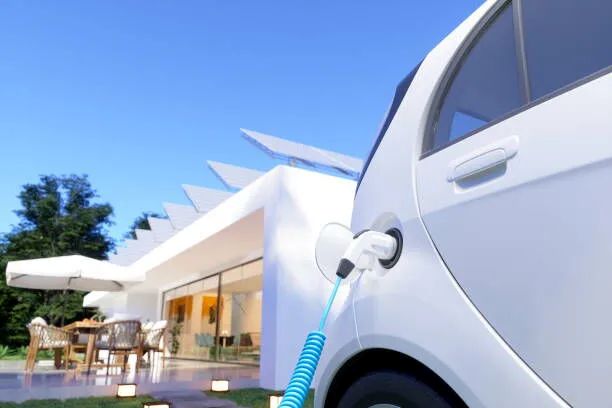


How to Choose the Right Home EV Charger for Your Electric Vehicle
Guide to Choosing the Right Home EV Charger
With electric vehicle (EV) ownership steadily increasing, having a reliable and efficient home EV charger is more important than ever. Whether you’re a new EV owner or looking to upgrade your current setup, understanding charger types and features is key to a smooth charging experience.
Understanding Charger Levels
EV chargers are categorized into three levels:
Level 1 Chargers: Use a standard 120V household outlet and provide about 3-5 miles of range per hour. They’re affordable and simple but typically too slow for fully electric vehicles, best suited for plug-in hybrids or short commutes.
Level 2 Chargers: Operate on 240V, offering faster charging speeds—usually 12-60 miles of range per hour. Level 2 chargers are ideal for home use, enabling overnight full charges for most EVs.
Level 3 Chargers (DC Fast Chargers): These provide rapid charging—up to 80% battery in 20-30 minutes—but require commercial-grade power supplies, making them impractical for home installation.
For most homeowners, Level 2 chargers strike the best balance between speed, cost, and ease of installation.
Single-Phase vs. Three-Phase Chargers
Home electrical systems are usually single-phase, providing 120–240V power, which is sufficient for most residential EV charging needs. Three-phase chargers, operating at 240–480V, deliver higher power outputs but typically require specialized electrical setups more common in commercial or some European homes.
If your home does not have three-phase power, a single-phase charger is usually the most cost-effective and practical option.
Connector Types: Type 1 vs. Type 2
Compatibility is essential. Most North American EVs use the J1772 connector (Type 1), common among American and Asian brands like Nissan and Mitsubishi. Meanwhile, European models (BMW, Audi, Volkswagen) generally use the Type 2 connector, which supports faster charging and is becoming the global standard.
If you own multiple EVs or want to future-proof your charger, a Type 2 model offers more flexibility.
Tethered vs. Untethered Chargers
Tethered Chargers: Have a fixed cable attached, making them convenient for everyday use, but less flexible if you switch vehicles with different connectors.
Untethered Chargers: Feature a socket-only design, allowing you to use different cables as needed. They look cleaner when not in use and offer better adaptability.
Choose tethered for convenience or untethered for flexibility.
Installation Options: Plug-In vs. Hardwired
Plug-In Chargers: Connect to existing outlets like NEMA 14-50 or NEMA 6-50, allowing easy installation and portability. These are great if you may move or want a simpler setup.
Hardwired Chargers: Permanently connected to your home’s electrical system for a clean look and better weather resistance. They require professional installation and are preferred for higher-power units.
Additional Considerations
Charging Speed: Look for chargers offering at least 32 amps for efficient charging, with options up to 50 amps for faster top-ups.
Smart Features: Wi-Fi-enabled chargers let you monitor and control charging via smartphone apps, schedule charging times, and track energy usage.
Cable Length: Ensure the cable is long enough (typically 16–25 feet) to reach your vehicle comfortably.
Durability: For outdoor installations, look for chargers with weatherproof ratings like IP66.
Incentives: Check for local or federal rebates that can lower installation and equipment costs.
Conclusion
Selecting the right home EV charger depends on your vehicle, electrical setup, and lifestyle. Level 2 single-phase chargers with the appropriate connector type are the best fit for most homes. Consider tethered versus untethered designs, installation methods, and smart features to find a charger that meets your needs today and in the future.
By making an informed choice and consulting a licensed electrician if needed, you’ll ensure your EV is always ready to go, making your transition to electric driving smooth and convenient.Know more about Google SEO Directory
